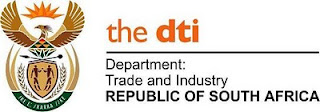Vanguard
In politics, the word “vanguard” means the professional force, human framework or “cadre”, which can lead the mass movement of the people on a revolutionary path.
The relationship of the revolutionary vanguard to the mass organisations of the people is similar to the relationship of a doctor to the people, or of accountants and lawyers to businesses, or of an architect or an engineer to builders and their clients. The vanguard is made up of professional revolutionaries.
The revolutionary vanguard is a servant, and not a master. The vanguard party of the working class serves the working class, and does not boss it.
The working-class vanguard party, which is the communist party, is not separate from the mass movement. It is intimately involved with the mass movement at all times and at all levels. To be a vanguard at all, it must study the workings of the mass movement.
The vanguard party educates, organises and mobilises. As a vanguard, it must have expert knowledge how mass movements in general, and especially about how the primary mass organisations of the working class which are the trade unions, work.
To deal with this crucial matter (how trade unions work) here is a text from the Marxists Internet Archive’s Encyclopaedia of Marxism, written by Brian Basgen and Andy Blunden, two comrades who clearly have vast experience of what they are writing about.
This text is empirical and experiential and there is nothing wrong with that, because experiential is exactly what trade unions and other mass organisations are. Trade unions arise out of the existing consciousness of workers as they are found under capitalism. In many ways workers emulate capitalist forms of organisation. Their initial purpose is to get a better money deal in exchange for their labour-power in the capitalist labour-market.
Trade unions are in the first place reformist, not revolutionary. Nor can trade unions become revolutionary without the assistance of professional revolutionaries, organised separately as a communist party. Lenin dealt with this relationship in “What is to be Done?” (download linked below).
Trade unionists who think that they can dispense with the assistance of a communist party are on a road to ruin.
Rules of Debate
Crucial to the democracy of mass organisations are the Rules of Debate and Procedure of Meetings. These are a bit like language, or political education, or the Internet, in the sense of being communistic. They are not given as authority. They are not imposed by a “state”. There is no institutional enforcer of these rules.
For example, the South African Communist Party has no given Rules of Debate or Standing Orders. Unfortunately this does not prevent people from claiming “Points of Order”! The nature of the notional “rules” is such that they are only effective to the extent that they are understood in common by the members of any particular gathering.
Wal Hannington [1896-1966, pictured] was well known as a communist leader of the unemployed workers’ movement in Britain in the 1930s. Our summary of his 1950 booklet “Mr Chairman” is included with this item on Trade Unions because communists involved in trade unions need this knowledge.
Hannington wrote: "The Chairman is there to guide the meeting, not to boss it." This is the most valuable message in his book. The Rules of Debate and the Procedures of Meetings are only justified to the extent that they liberate the people present. They become useless when they are felt as a burden or an obstruction.
The point is not for the Chairperson to “keep order”, or for individuals to be bullied down with “points of order”. The Chairperson serves the meeting, and the meeting needs to know how to guide the Chairperson. Everything works best when everyone knows the generic Rules of Debate.
Downloads:
Further (optional) reading:

























